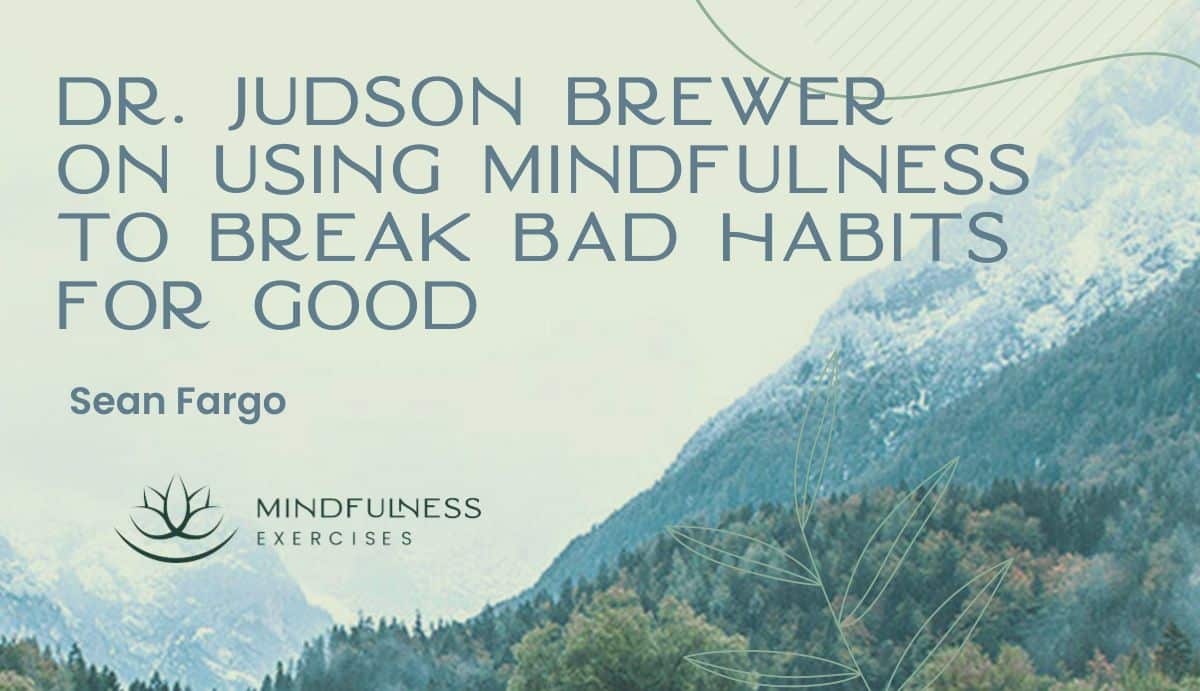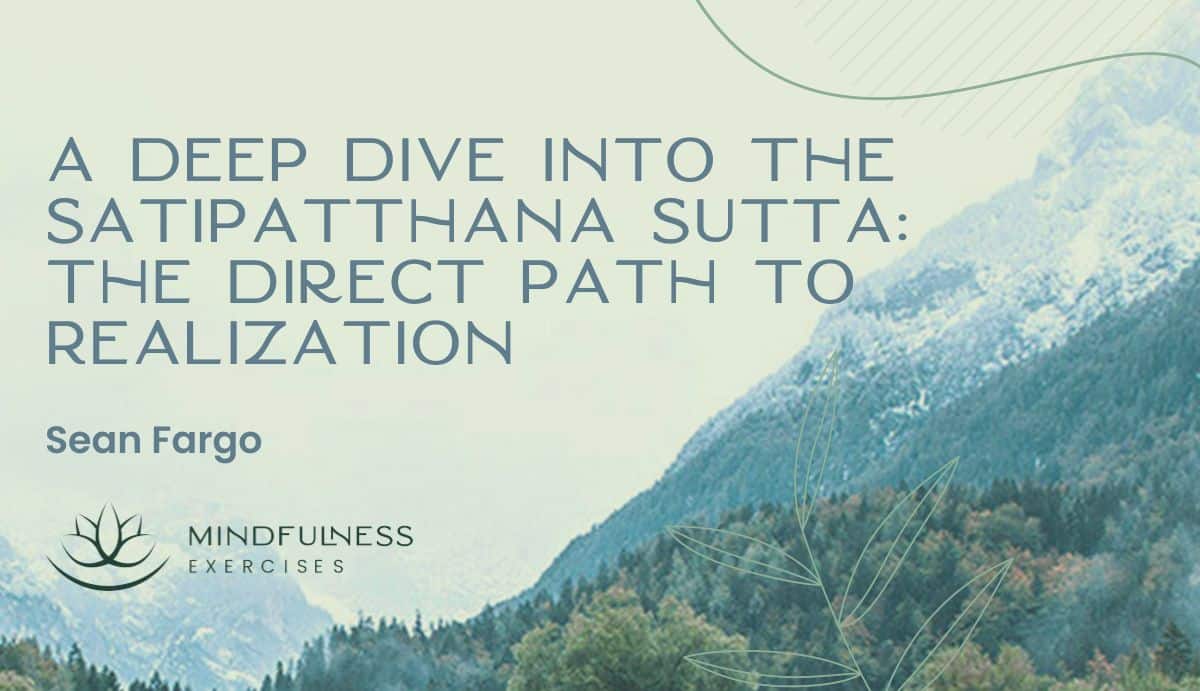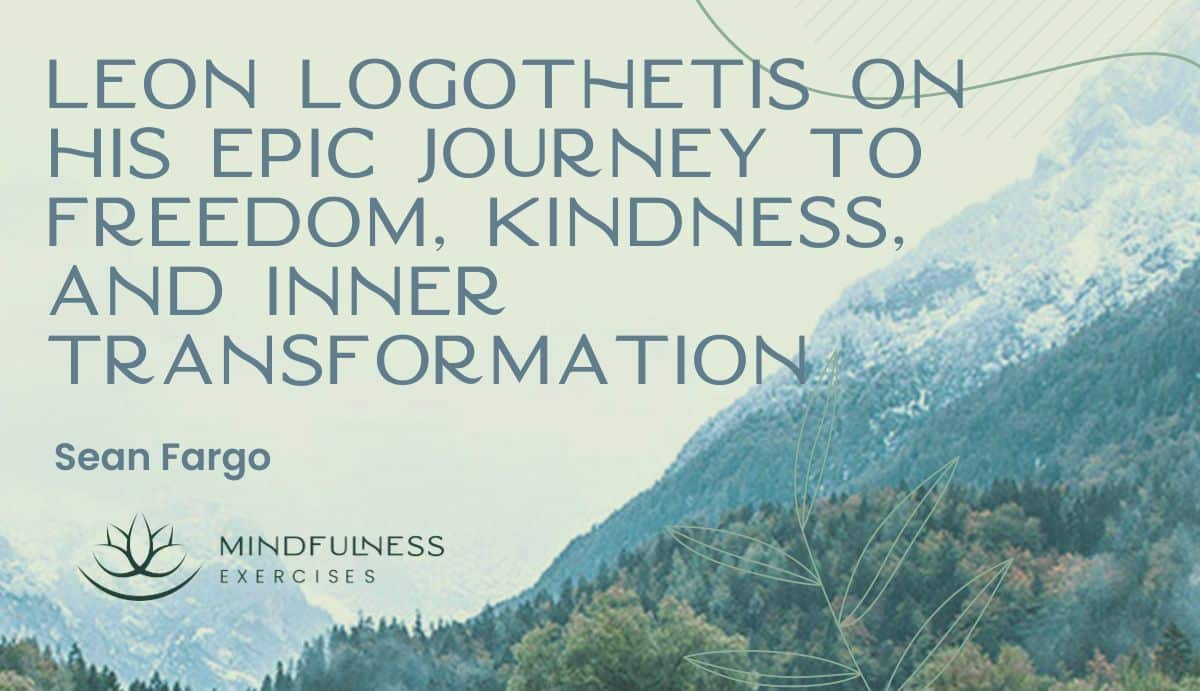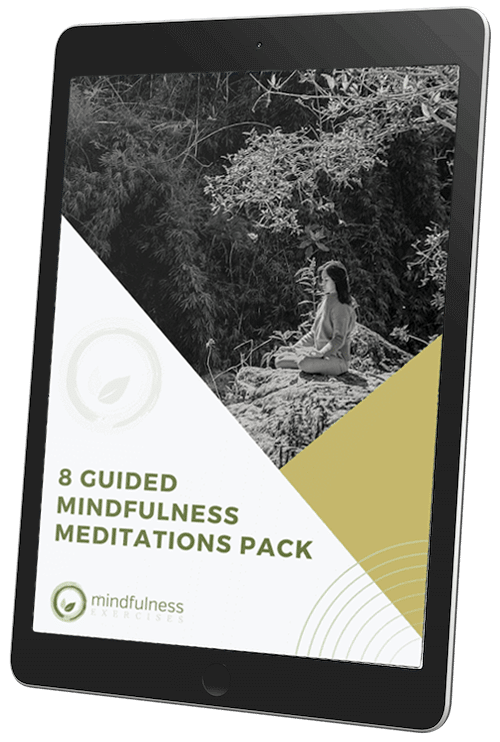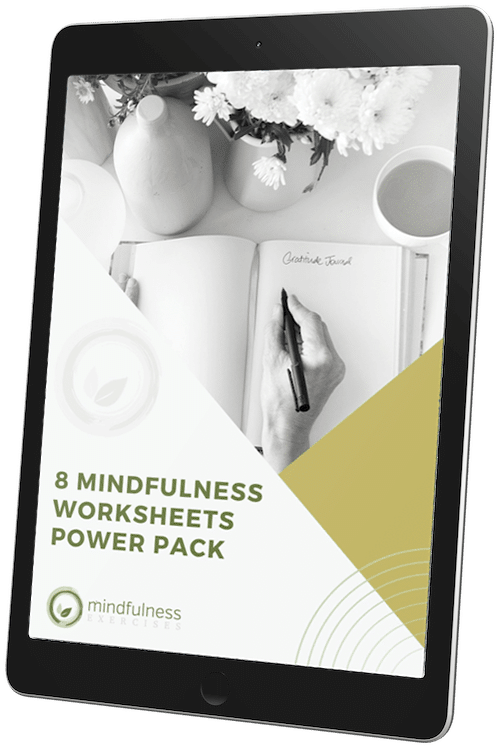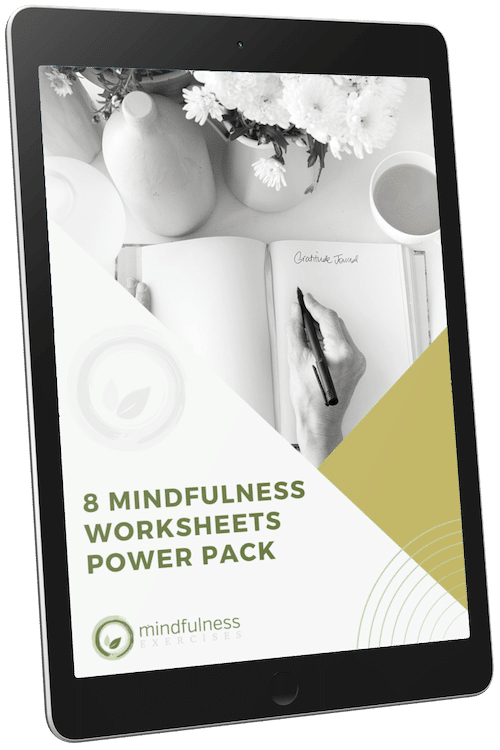Listen now
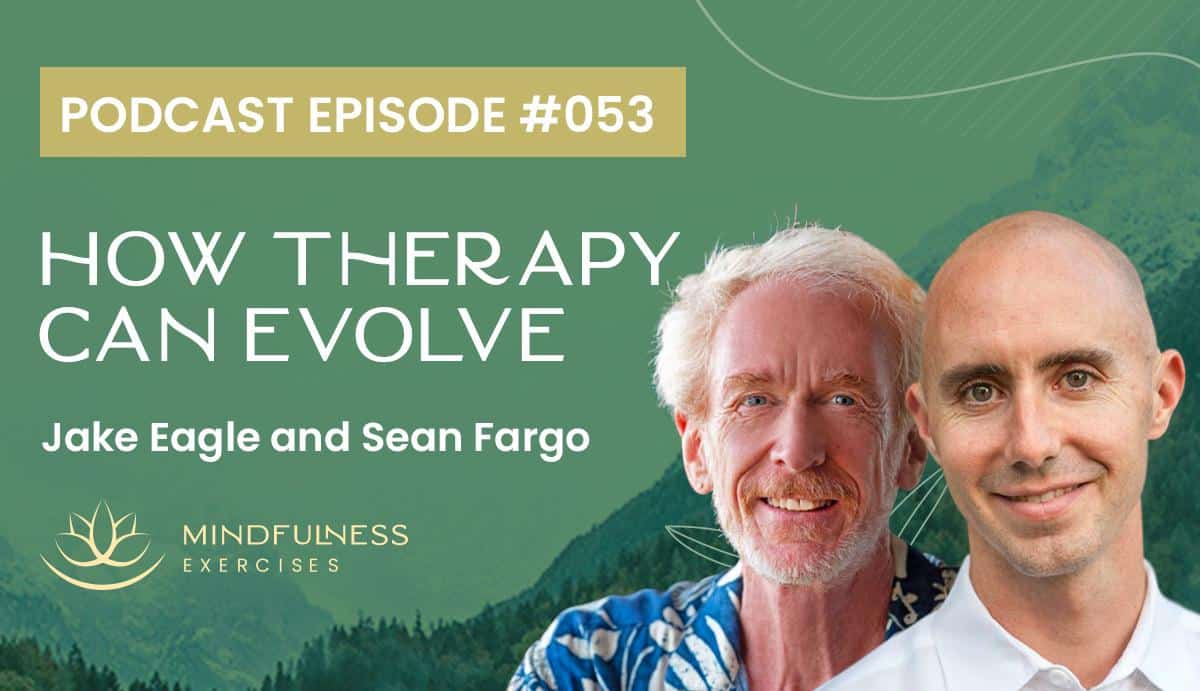
Is traditional talk therapy as effective as it could be? If individualism and holding too tightly to a single identity is what ails us, perhaps reifying the past in a one-on-one setting is not the most powerful method for moving forward.
In this episode, Sean Fargo speaks with Jake Eagle, licensed psychotherapist and co-author of The Power of Awe: Overcome Burnout & Anxiety, Ease Chronic Pain, Find Clarity & Purpose - In Less Than 1 Minute Per Day. After 30 years of practice, he now refers to himself as a meta-therapist, coaching and mentoring people to see what’s possible with just a simple shift in consciousness.
For an interview with Jake about his book, listen to episode #050, Microdosing Mindfulness, with Jake Eagle and Sean Fargo.
This podcast is brought to you by the Mindfulness Meditation Teacher Training Program. Learn more about this unique, online, self-paced certification program at mindfulnessexercises.com/certify
What You’ll Learn in This Episode:
Show Notes & Quotes:
The limits of traditional talk therapy
The self-improvement movement has grown by leaps and bounds over the past 30 years, but are we treating ourselves and others with more care and kindness? Perhaps part of the problem is talk therapy’s focus on the individual and their past story. As society becomes increasingly self-centered and self-focused, a therapy that further emphasizes this separation may not be conducive to the healing we need.
“More people than ever are in therapy. The self-help movement is huge. But I still think we’re not moving the needle enough, or even in the right direction. I think part of what’s happened is people are becoming too self-absorbed and narcissistic. Constantly self-reflecting and asking questions that aren’t productive.”
A therapeutic shift in consciousness
Jake Eagle and his wife have developed a new therapeutic model which identifies 3 levels of consciousness. Most of us operate in level 1, ‘safety consciousness.’ We busy ourselves with getting what we need to survive and keep our loved ones safe. This level of consciousness, however, tends to keep us focused on ‘me and mine.’ It involves scarcity, competition, and defensiveness, and it thrives on a feeling of separateness.
“My concern about therapy is almost all of it occurs in safety consciousness. So a client comes in and they say here’s my problem, this is what so-and-so did to me, and oftentimes the therapist will validate that by saying [...] ‘I’m sorry that happened to you,’ and ‘let’s talk more about it.’ That reifies the experience that the client has. My approach to that is to encourage the client to shift their level of consciousness and recognize the way they were seeing it, the way they were talking about it, was simply one perspective. It is not the Truth.”
Higher states of consciousness
In Jake Eagle's model, the second and third states of consciousness are heart consciousness, and spacious consciousness, respectively. In a more open-hearted, spacious state we can be just as productive. But we’re also more likely to behave with more loving kindness toward ourselves and others. In these higher states, the meaning we make of our lives shifts toward something more beneficial.
“When I go to spaciousness and I have this [...] sense of expansion and connection with I-don’t-know-what. Well, you can see I don’t have words. And, whatever it was I was complaining about, if I was a client in therapy, [...] it no longer matters. Temporarily, it doesn’t matter. It’s no longer significant. So now we’ve just opened up the mind and the heart and the body and we’re in this place of enormous creativity, and we can go anywhere.”
Why group therapy is particularly beneficial
The making of new meaning is perhaps best done in group settings. In a group, we’re exposed to diverse perspectives and we can see how different people can so easily assign different meanings to the same event. The group can also help us soften our attachment to a fixed identity.
“And it just starts to create more porosity in our mind. We open up, we relax, we stop being so attached to our idea of what’s right or wrong, or good or bad. [...] And we’re trying to help people shift to activate what I call the modern brain or the prefrontal cortex which is where we have choice, we have options. It’s really where we do create meaning.”
How being witnessed helps us change
Among the different group dynamics at play is the element of being witnessed. Does feeling witnessed by the group help validate our growth, or help us to more strongly embrace new meaning? Jake mentions his mentor John Weir, who didn’t believe people could change unless they felt witnessed. The witnessing, however, is less about validation, and more about an internal feeling.
“The way that the witnessing occurs that I think is so profound is that you come to a group and you share something about yourself that’s intimate and very personal, and all of these people are there, and an hour later you’re having lunch with them. Or you’re out on the beach playing with them, [...] whatever it is. But there’s this profound sense of being part of a community and being seen and accepted, much of which is non-verbal. And I think that’s a great part of the power of where the depth of the work comes from.”
Why looking back is not the answer
Much of traditional therapy is spent looking back and attempting to resolve our past. Jake agrees this is part of the journey, but emphasizes that it’s just a small part. What’s perhaps more important is our present moment behavior. Jake presents a model in which our self-regard is conversely related to our reactivity. Those who are highly reactive tend to have little self-regard, while those with higher self-regard tend to be less reactive. So what comes first: our behavior or high self-worth?
“I think it’s much more about being present and it’s much more about how we behave. And I don’t think there’s enough emphasis on that. [...] If we put more emphasis on how we behave and conducting ourselves in a way that we feel good about, I think we move ourselves significantly toward greater health and wellbeing. And what I find so interesting is that almost every time I’ve seen somebody behave poorly and I’m around and I can intervene and I say to them ‘How would you like to behave, what would be a better way to handle yourself?’ They almost always know the answer.”
Additional Resources:
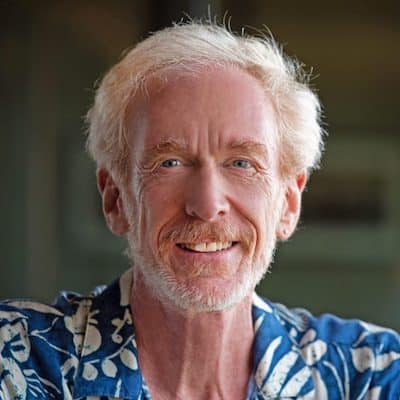
About Jake Eagle:
Jake Eagle is a licensed psychotherapist. After 30 years of practice, he now refers to himself as a meta-therapist, coaching and mentoring people to see what’s possible beyond therapy. He believes therapy has its place, but that talking about the past also has its limitations.
His book, The Power of Awe: Overcome Burnout & Anxiety, Ease Chronic Pain, Find Clarity & Purpose - In Less Than 1 Minute Per Day, describes a simple, 15-second mindfulness practice that turns ordinary moments into awe-inducing experiences which help shift us into a more expansive state of consciousness.
Jake is also the author of Get Weird, Make the Most of Your Life, and the co-founder of Live Conscious, a community of people practicing skills for living and loving more consciously.

